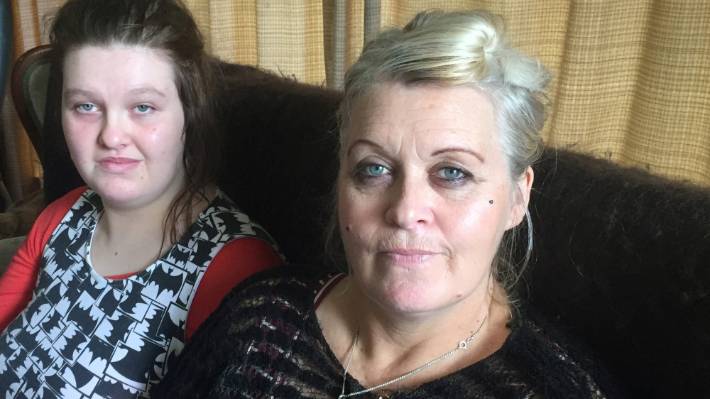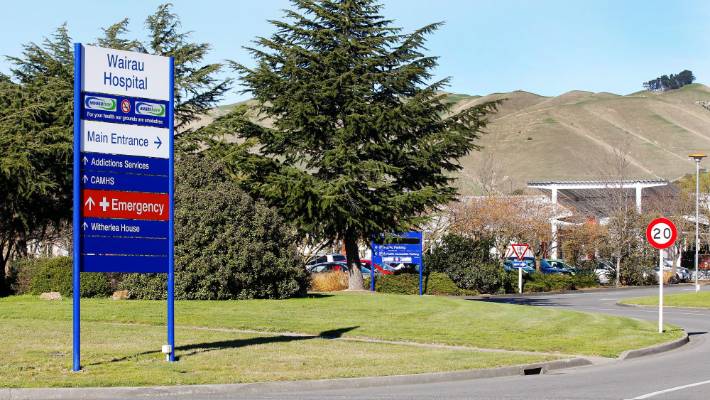Medical profession denies failing Donella and Ruby Knox during sentencing

A woman serving prison time for murdering her autistic daughter did not have enough social, financial or medical support, her lawyer says.
However the medical profession largely denied failing Blenheim woman Donella Knox, 48, who murdered Ruby on May 16, 2016 in what the judge described as "part mercy killing, part self defence".
Ruby, aged 21 at the time, had severe autism spectrum disorder, an intellectual disability and multiple chronic health issues.

Knox felt let down by the health system, and dismissed as a "hysterical mother" who "meddled", Justice Joe Williams said at her sentencing in 2016. Knox was jailed for four years on December 16, 2016 but strict suppression orders during the appeal period prevented media from publishing the details of her daughter's death.
READ MORE:
* Mum murdered autistic daughter after years of abuse
* Blenheim author details struggles caring for autistic daughter
* Woman sentenced for murder in Blenheim
"Ruby had complicated medical issues and you complained she didn't receive integrated health care or adequate treatment," Justice Williams added.

Knox's lawyer Simon Shamy said after her sentencing that a "whole team of people" was needed to give Ruby the care she required.
"She had hugely complex problems. She was 100kg, 6-foot tall, she had violent outbursts, spina bifida, bowel problems, and she couldn't even communicate with the clinicians.
"I've referred to it as a perfect storm because they lived in a small centre with limited medical facilities and not enough money, and no social support. People did their best, but there just weren't enough resources."

Knox looked after Ruby at home, receiving about three hours of respite care a day.
She did not have a partner to "share the load with", Justice Williams said.
Knox became angry and upset when medical staff suggested Ruby should be in residential care.
In the months before Ruby's death, Knox was frequently turning up at the emergency department at Wairau Hospital, in Blenheim.
She was convinced Ruby was in great pain and "demanded something must be done", Justice Williams said.
"You became angry and upset when it was put to you that you were just emotional, distressed and not thinking straight."
In February last year, Knox was turned away from the hospital with staff saying Ruby was not in pain, but rather needed medication for her behavioural problems.
However when Knox went to Starship Hospital, surgeons agreed she was in pain and performed assessments.
The clinicians' diagnoses could have been "coloured" by their irritation over "being nagged by a mother", Shamy said.
By the day of Ruby's death, Knox was suffering from months of sleep deprivation and stress from coping with limited supports, Justice Williams said.
"You were increasingly socially isolated and financially struggling. You felt your options were essentially exhausted, and you saw no hope for improvement.
"You felt totally hopeless and let down by the system … You felt no one was taking you seriously or urgently."
However some health professionals gave a different view of their interactions with Knox, Justice Williams said.
A Support Works service co-ordinator wrote in a statement to the court that Knox received respite care 252 days a year, a higher amount than anyone else in Marlborough.
Knox was getting "regular and sufficient breaks", the co-ordinator said.
When clients who relied on the service reached adulthood and the supports available changed, it could be a difficult for parents, and it could seem as though no-one wanted to help, the co-ordinator said.
"The medical profession denied there was insufficient support," Justice Williams said.
Shamy acknowledged he was "just a lawyer", but said support needed to be more integrated, taking mental health into consideration as well as physical health.
"I mean, Donella was having heart palpitations from anxiety by the end of it. She was doing everything she could."
Stuff